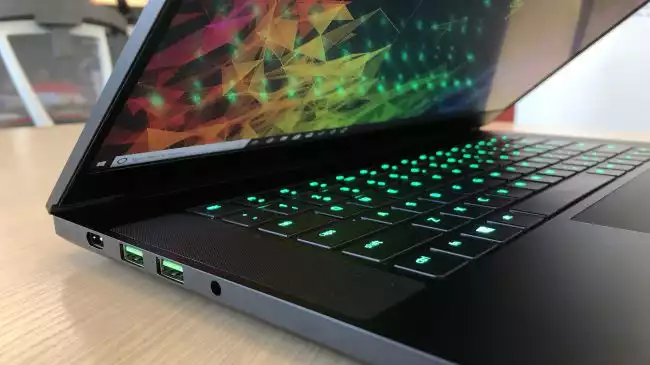It is still too early to tell the obituary of the mechanical hard disk drive (HDD), but things are certainly changing. Solid state drives (SSDs) are faster, have no moving parts to worry about, and have come down in price dramatically over the past decade. It is no wonder that HDDs are not even a fingernail's breadth of adoption in the laptop sector, at least in Western Europe.
According to market research firm Context, more than 93% of new notebooks sold in Western Europe in the fourth quarter had SSDs as the primary storage component. Just two years earlier, SSDs were installed in two-thirds (66.7%) of notebooks.
This was bound to happen as SSD pricing continues to become more favorable. However, Context also points to other factors that led to the near abandonment of HDDs.
"The steep drop in price per gigabyte observed in 2019 has enabled vendors to sell SSD configurations at competitive prices, a key factor accelerating SSD adoption," said Context analyst Gurvan Meyer. Meanwhile, online storage services are becoming less expensive and the use of streaming online services is becoming more common, reducing the need for high-capacity local storage.
It is not certain how many laptops in Western Europe still have HDDs as secondary storage devices next to SSDs for primary storage. In any case, due to the benefits of SSD storage, laptop buyers in Western Europe are willing to pay more per gigabyte than they would with an HDD.
"The majority of consumers are happy to pay a little more for a machine with this type of storage because they have experienced the benefits that SSDs bring to their daily computer use," Meyer added.
Context predicts that by the end of 2020, every new laptop sold in Western Europe will have an SSD as its primary storage drive; by 2019, laptops and desktops combined will have HDDs only 2% will have HDDs, and the region is already on the verge of becoming HDD-less.
"Germany follows, with a 93.4 percent share of SSDs in the overall PC market, and the UK completes the podium with only 9.9 percent of PCs sold in the country in Q4 2019 having HDDs. In Southern Europe, the transition has been slower, with an average of 85 percent of PCs sold at the end of 2019 featuring SSDs."
Context's prediction is just a bit bolder, though it assumes that NAND flash memory prices will hold steady or continue to fall. In any case, SSDs are the best thing that has happened to PC hardware in the past decade, whether or not SSDs fully take the lead this year.


Comments